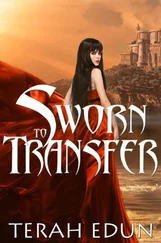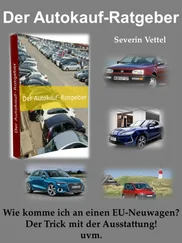Anglia, from Norwich, and I've been sent here to gain experience under my uncle.'
'It must cost the king a great deal to keep so many moneyers employed,' I said wonderingly.
Thurulf laughed at my naivety. 'Not at all. Quite the reverse. He does not pay them. They pay him.'
When he saw that I was baffled again, Thurulf went on, 'The moneyers pay the king's officials for the right to stamp money, and they take a commission on all the coins they produce.'
'Then who's paying the commission, and who supplies the silver which is turned into coins?'
'That's the beauty of it,' said Thurulf. 'Every so often, the king announces a change to the design of his coins and withdraws the old style from circulation. His subjects have to bring the moneyers all their old coins. These are then melted down for the new issue, and the new coins are given out, but not to the same value as those that were given in. There is a deduction of five to fifteen per cent. It's a simple and effective royal tax, and of course the moneyers get their share.'
'So why don't the people just keep their old pennies and use them amongst themselves as currency?'
'Some do and they value their old coins by their weight of silver when they come to trading. But the king's advisers are a clever lot and they've found a way round that too. When you pay royal taxes, whether as fines or trade licences or whatever, the tax collectors only accept the current issue of coins. So you have to use new coins and, of course, if you fail to pay the tax collectors, they impose more fines and that means you have to obtain more coins of the new issue. It's a system of pure genius.'
'Don't people complain, or at least try to melt down their own old coins and stamp out a copy of the new design?'
Thurulf looked mildly shocked. 'That's forgery! Anyone caught making false coins has their right hand cut off. The same penalty, incidentally, applies to any moneyer caught producing coins which are fake or under weight. And the merchants don't complain about the system because the royal stamp on coins is a guarantee of quality. All over Europe the coins of England are regarded as the most trustworthy.'
I looked at the number of men working at the benches, and the porters and assistants who were moving around, carrying bags of silver blanks and finished coins. There must have been at least thirty of them.
'Isn't there a risk that some of the workers will steal? After all, a single penny must represent at least a day's wage for them, and a coin or two would be very easy to carry away.'
'That's why my uncle has designed the premises with that balcony so he can appear from his rooms at any time and look down into the workshop to see what's going on, but the counting is far more effective. A moneyer's job might seem to be nothing but organising a lot of men to hammer out coins while he himself endures the din. But the real chore is the endless counting. Everything is counted in and out. The number of blanks issued to each worker, the number of finished coins he returns, the number of damaged coins, the number of coins received in for melting down, their precise weight, and so on. It's endless, this counting and recounting, checking and rechecking, and everything of value is stored in the strongrooms behind you.' He pointed to a row of small rooms located directly under his uncle's rooms. Brithmaer, I thought to myself, ate and slept on top of his money like a Norse troll guarding his most valuable possessions.
I saw what I thought might be a flaw in the moneyer's defences. 'What about the striking irons?' I asked. 'Couldn't someone copy one of them, or steal one, and start making coins that are indistinguishable from the genuine article?'
Thurulf shook his head. 'It takes great skill to craft a striking iron. The metal is particularly hard. The shank is of iron, but the flat head is steel. To engrave the right image takes a master craftsman. New striking irons are issued by the king's officers when the design of the coin changes. Each moneyer has to buy them from the iron-maker, and return all the striking irons of the older design. More counting out and counting in.' He sighed. 'But recently my uncle was authorised to have a master craftsman engrave irons here on the premises and that's a great relief. After all he's been a moneyer for nearly forty years.'
'You mean your uncle is a moneyer for the Saxon kings, as well as for Knut?'
'Oh yes,' said Thurulf cheerfully. 'He was a moneyer for Ethelred the Ill-Advised long before Knut came along. That's why my uncle has amassed such a fortune. Kings may change, but the moneyers stay the same and go on making their commissions.'
Later that afternoon Thurulf took me to see his uncle at what he called 'the exchange'. It was another sturdy building, closer to the waterfront, where the little stream called the Wal-brook empties into the Thames near the wharves. There I found Brithmaer sitting at a table in a back room, writing figures in a ledger. He glanced up as I came in, again with that bland and careful look. 'Did Thurulf show you the jewellery stock?'
'Not yet,' I answered. 'He showed me the coin makers, and then we went to eat at a tavern near the docks.'
Brithmaer did not react. 'No matter. Now that you're here, I'll explain how the jewellery side of my business operates, so you can do whatever it is that the queen wants.'
He nodded towards three or four locked chests on the floor beside him. 'This is where the preliminary assessment is made. When foreign merchants arrive in London port, they usually visit this office first of all. They need to pay the port dues to the harbour reeve and, as this is a royal tax, they have to pay in English coin. If they don't have any English coin they come to my office. I give them good English silver stamped with the king's head in exchange for their own foreign coins or whatever they have to offer. Most of the exchange work is straightforward, and done in the front office. My clerks know the comparative value of Frisian coins, Frankish coins, coins from Dublin and so forth. If they don't recognise a coin, they weigh it and place a value on the metal content. But occasionally we get items brought to us like this.'
He pulled out a heavy iron key and unlocked the largest of the chests. Opening the lid, he reached in and produced an ornate buckle, which glinted gold in the weak afternoon light.
'As you can see, this is valuable, but how valuable? What is it worth in English coin, do you think? Maybe you would care to give me an opinion.'
He passed the buckle over to me. I knew he was testing me so I looked at it cautiously. Compared to the metalwork I had seen in my Irish monastery, it was crude stuff. Also it had been damaged. I weighed it in my hand. For something that looked like gold, it was remarkably light. 'I have no idea of the value,' I said, 'but I don't think it would be worth very much.'
'It's not,' the old man said. 'It's not genuine gold, but gilt over a bronze base. I would say it was once part of a horse harness belonging to some showy chief, perhaps among the Wendish people. It's amazing what shows up in the hands of the merchants, particularly if they come from the northern lands. Everyone knows the reputation of the Norse as raiders. A merchant may come in from Sweden looking to exchange a pile of broken silver bits and some foreign coins, then find he has not enough value for what he needs, reach into his purse and produce this—'
The old man rummaged in the chest, and pulled out something I recognised at once. It was a small reliquary, no bigger than the palm of my hand and made in the shape of a tiny casket. It was crafted in silver and bronze, and decorated with gold inlay. Doubtless it had been looted from an Irish monastery. It was an accomplished piece of metalwork.
'So what do you think that one is worth?'
Читать дальше








